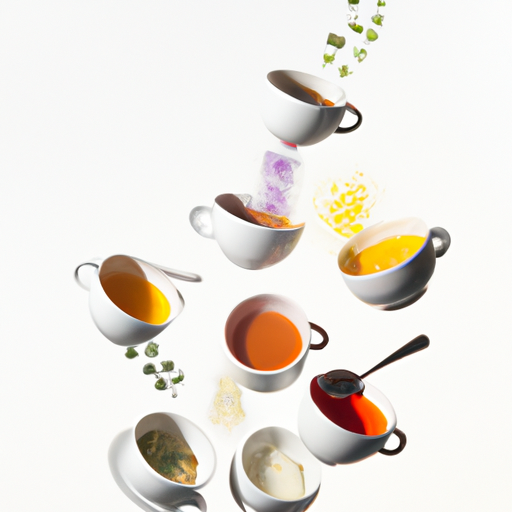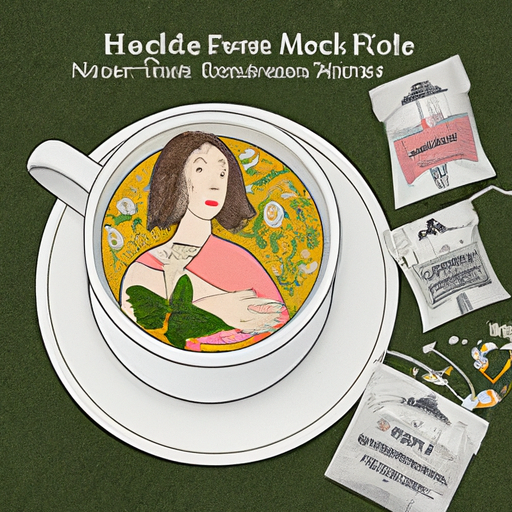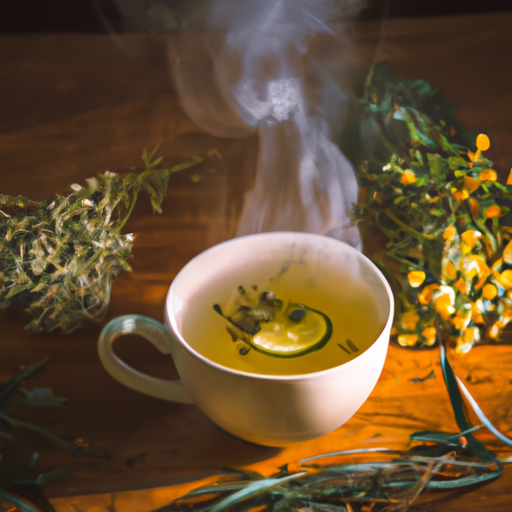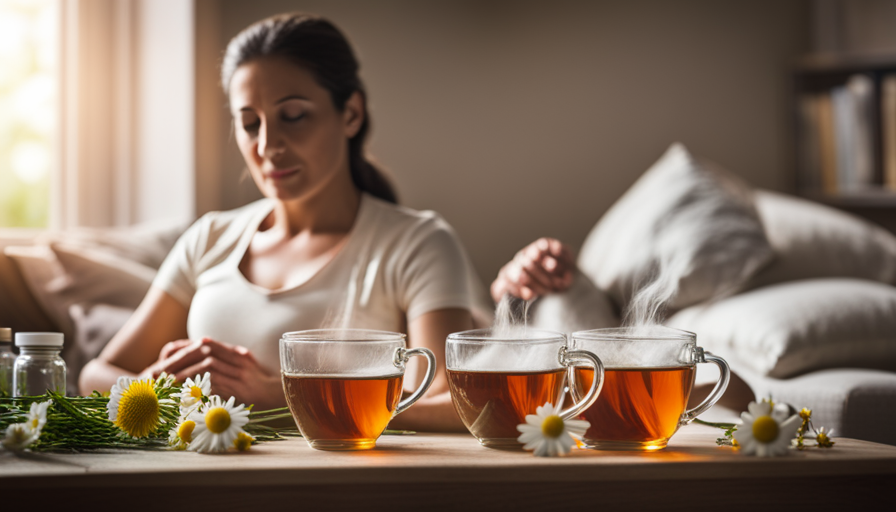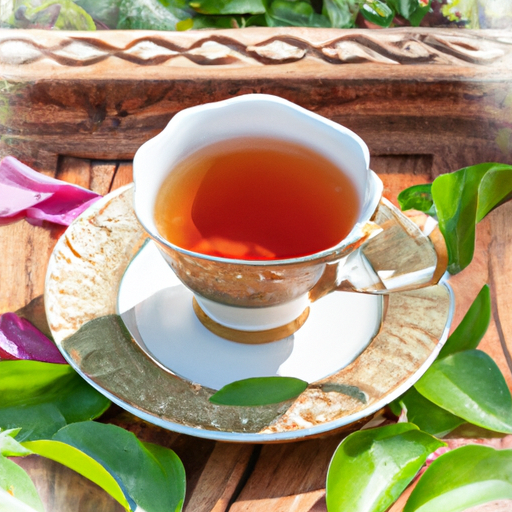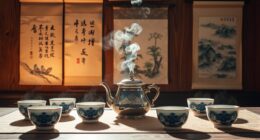They say that breakfast is the most important meal of the day. But have you ever thought about the beverages we drink throughout the day? As the saying goes, ‘Too much of a good thing can be bad for you.’ This certainly applies to herbal tea, a beloved drink that many people enjoy.
While herbal tea offers a myriad of health benefits, it’s important to understand that moderation is key. So, how many cups of herbal tea per day is bad for you?
In this article, we will delve into the recommended daily intake of herbal tea, potential side effects of excessive consumption, factors that influence how much you should drink, signs that you may be overdoing it, and tips for moderating your consumption.
Remember, balance is the key to a healthy lifestyle, even when it comes to something as seemingly innocent as herbal tea.
Key Takeaways
- Herbal tea should be consumed in moderation, as excessive consumption can have adverse health effects.
- Different types of herbal teas have varying recommended daily limits, and it is important to be aware of these limits.
- Factors such as age, health status, and medications can influence the amount of herbal tea that is safe to consume.
- Consulting with a healthcare professional is advisable for personalized advice on herbal tea consumption.
The Health Benefits of Herbal Tea
You’ll be amazed at the incredible health benefits that herbal tea can offer you!
Herbal tea is not only a delicious and refreshing beverage, but it also has numerous potential benefits for your health. Studies have shown that herbal tea can help improve digestion, boost immunity, reduce inflammation, and promote relaxation.
Some herbal teas, such as chamomile and peppermint, have even been found to have potential anti-anxiety and sleep-promoting effects. However, it’s important to note that herbal teas can also have potential risks and possible interactions with certain medications.
It’s always a good idea to consult with your healthcare provider before incorporating herbal tea into your daily routine, especially if you have any underlying health conditions or are taking medications.
Understanding the recommended daily intake of herbal tea is crucial for ensuring its benefits and avoiding any potential risks.
Understanding the Recommended Daily Intake of Herbal Tea
Exceeding the recommended daily intake of herbal tea can be detrimental to your health. The recommended serving size of herbal tea varies depending on the type of tea. For most herbal teas, it’s generally safe to consume 2-3 cups per day.
However, it’s important to note that some herbal teas, such as those containing licorice root or certain medicinal herbs, may have specific recommended limits due to potential interactions or side effects. It’s always advisable to consult with a healthcare professional or herbalist for personalized advice.
In the next section, we’ll explore the potential side effects of excessive herbal tea consumption and how it can impact your overall well-being.
Potential Side Effects of Excessive Herbal Tea Consumption
Beware of going beyond the recommended intake of herbal tea, as it can have adverse effects on your health, potentially causing discomfort or harm. While herbal tea is generally considered safe, excessive consumption can lead to potential risks and long-term effects.
One of the main concerns is the presence of certain compounds, such as caffeine and tannins, in herbal teas. Consuming excessive amounts of these compounds can lead to side effects like increased heart rate, insomnia, digestive issues, and even nutrient deficiencies. Additionally, some herbal teas may interact with certain medications or have specific effects on certain individuals, such as pregnant women or those with certain health conditions.
Therefore, it is important to be mindful of the recommended daily intake and to consult with a healthcare professional if you have any concerns. Moving on to the subsequent section about factors that influence how much herbal tea you should drink, it is crucial to consider individual factors such as age, health status, and any medications being taken.
Factors That Influence How Much Herbal Tea You Should Drink
Consider the factors that influence how much herbal tea is appropriate for your individual needs and circumstances. When determining the amount of herbal tea to consume, it is important to take into account factors that can influence tea quality and potency. These factors include the type of herbal tea you are drinking, the strength of the brew, and your own personal tolerance. Different types of herbal teas have varying levels of active compounds and potential side effects. For example, some herbal teas may contain caffeine or other stimulants that can affect your sleep patterns or cause jitters. Additionally, the strength of the brew can impact the concentration of beneficial compounds in the tea. It is recommended to start with a moderate amount of herbal tea and gradually adjust based on how your body responds. Transitioning to the subsequent section, it is important to be aware of signs that you may be consuming too much herbal tea.
Signs That You May Be Consuming Too Much Herbal Tea
Watch out for these signs if you’re drinking too much herbal tea – it’s time to listen to your body.
While herbal tea is generally considered safe, consuming excessive amounts can pose potential risks. One of the most common signs of herbal tea overdose is increased heart rate and palpitations. If you find yourself feeling jittery or experiencing irregular heartbeats after drinking herbal tea, it may be a sign that you’re consuming too much.
Another indicator is difficulty sleeping or insomnia, as herbal teas can contain caffeine or other stimulants. Additionally, frequent urination and digestive issues like stomach cramps or diarrhea may also signal excessive consumption.
Pay attention to these signs and adjust your herbal tea intake accordingly.
Now, let’s move on to some tips for moderating your herbal tea consumption.
Tips for Moderating Your Herbal Tea Consumption
To maintain a healthy balance, it’s important to find ways to moderate your intake of herbal tea. While herbal tea can be a soothing and enjoyable beverage, consuming excessive amounts may have negative effects.
One way to moderate your herbal tea consumption is by exploring herbal tea alternatives. There are a variety of caffeine-free options such as chamomile, peppermint, or rooibos tea that can provide similar benefits.
Additionally, if you’re concerned about weight management, it’s important to remember that herbal tea alone isn’t a magic solution. It can be a helpful addition to a balanced diet and exercise routine, but it shouldn’t be relied upon as the sole method for weight loss.
Remember, it’s always best to consult with a healthcare professional for personalized advice on herbal tea consumption and its impact on your health.
Consult with a Healthcare Professional for Personalized Advice
Make sure you consult with a healthcare professional who can provide personalized advice tailored to your specific needs and concerns. They can offer you personalized guidance and individualized recommendations regarding your herbal tea consumption. It is important to remember that everyone’s body is different and what may be suitable for one person may not be the same for another. By seeking professional advice, you can ensure that you are making informed decisions about your herbal tea intake. To help you understand the potential effects of excessive herbal tea consumption, here is a table showing the recommended daily limits of some common herbal teas:
| Herbal Tea | Recommended Daily Limit |
|---|---|
| Chamomile | 5 cups |
| Peppermint | 4 cups |
| Ginger | 3 cups |
| Rooibos | 6 cups |
Remember, this table is just a general guideline, and individual tolerances may vary. So, consult with a healthcare professional for personalized advice regarding your herbal tea consumption.
Frequently Asked Questions
Can herbal tea help with weight loss?
Herbal tea alone won’t magically shed pounds, but it can support weight loss efforts. It may boost metabolism and hydration, which are essential for a healthy body. However, moderation is key.
Can herbal tea be consumed during pregnancy?
Herbal tea can be consumed during pregnancy, but it is important to consult with a healthcare provider. Some herbal teas may help with morning sickness, while others like raspberry leaf tea have been associated with labor induction.
Can herbal tea improve digestion?
Herbal tea can improve digestion and reduce bloating. It has been shown to have beneficial effects on gut health. However, it is important to moderate your intake and not exceed recommended amounts.
Can herbal tea be consumed with medications?
Herbal tea can interact with medications, potentially causing adverse effects. It is important to consult with a healthcare provider to understand the specific risks and potential drug interactions associated with consuming herbal tea with medications.
Can herbal tea help with anxiety and stress?
Herbal tea can help with anxiety and stress by promoting relaxation and improving sleep. It is a natural remedy that has been used for centuries to calm the mind and body.
Conclusion
In conclusion, it’s important to be mindful of how much herbal tea we consume in a day. While herbal tea offers numerous health benefits, excessive consumption can lead to potential side effects. Factors such as individual tolerance, health conditions, and medication interactions should be considered when determining the appropriate amount of herbal tea to drink. If you notice any signs of overconsumption, such as digestive issues or caffeine sensitivity, it may be wise to cut back. Remember, moderation is key. So, sip your herbal brews with caution and consult a healthcare professional for personalized guidance.

